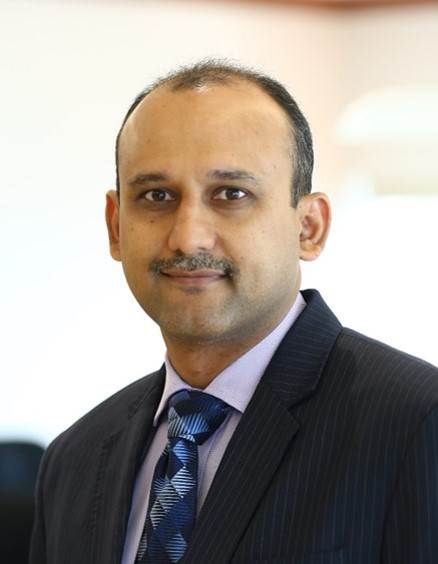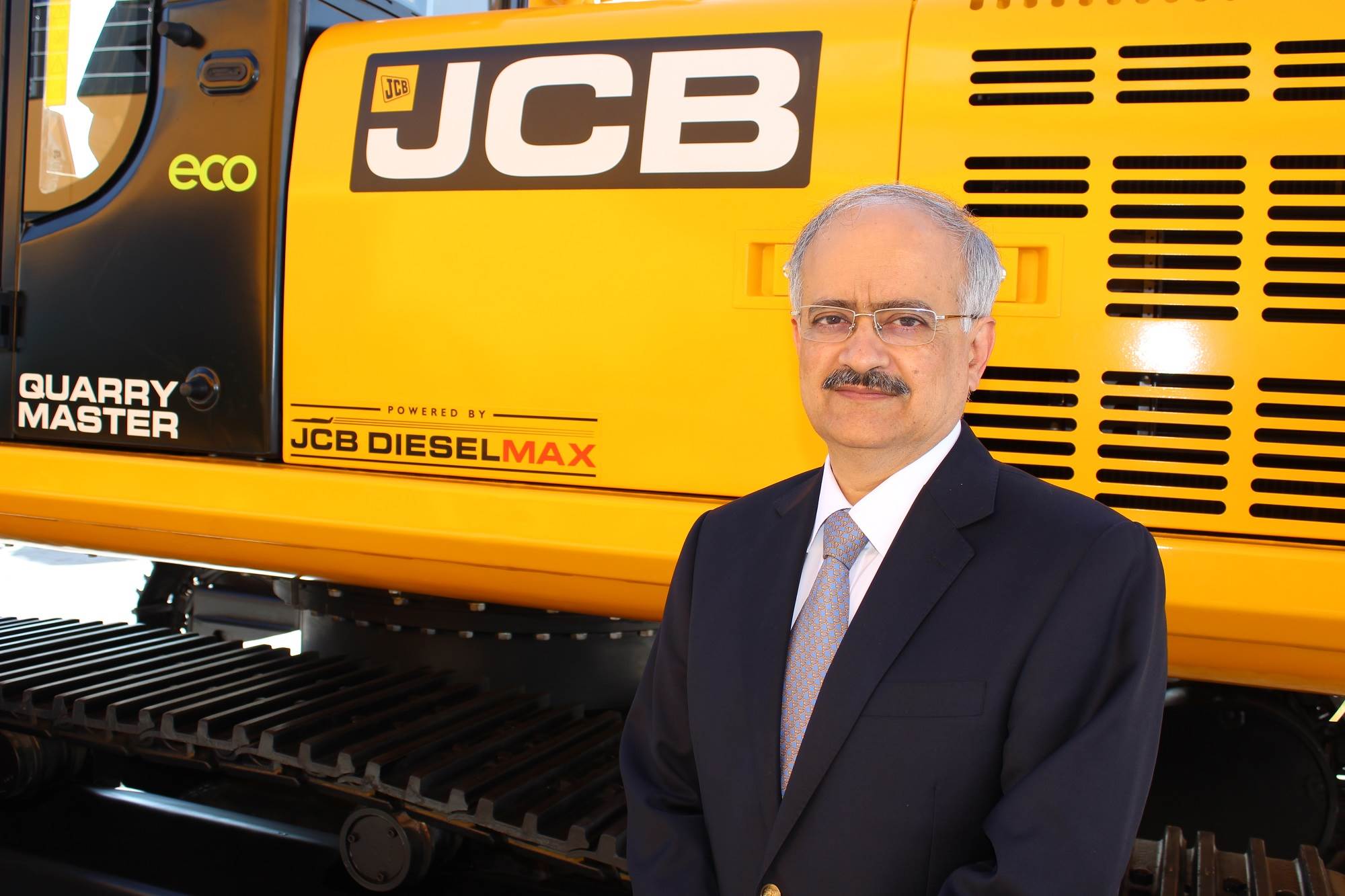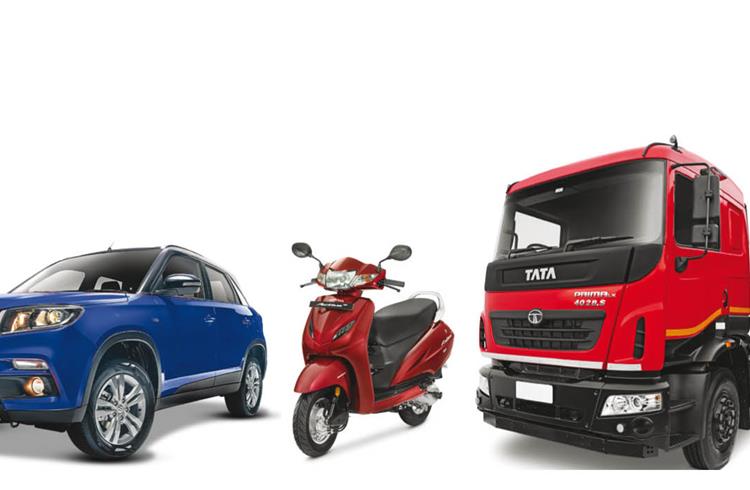Budget 2018 may see ripple effect for India Auto Inc
Government’s infra and rural India push to drive demand for CVs, two-wheelers, entry level cars and tractors; component-making MSMEs to get access to funds; NITI Aayog plans AI program
The Indian automotive industry, though not a major beneficiary from the just-announced Union Budget 2018, will still benefit from demand created by the government’s heightened focus on big-ticket spend on infrastructure and rural India.
ACMA, the apex body representing India’s auto component sector, welcomed the measures announced in the Union Budget for providing the much needed thrust to the economy and making it inclusive. The industry body expressed satisfaction on the focus on development of rural economy, manufacturing, infrastructure, education, ease of doing business, attracting investments and encouraging innovation and digitisation.
Congratulating the Union Finance Minister, Arun Jaitley, president ACMA, Nirmal Minda, said, “The Budget unveiled by Hon’ble Finance Minister is indeed inclusive and pro-manufacturing. The component sector is delighted that the duty on select items such as engine & transmission parts, brakes and parts thereof, suspension and parts thereof, gear boxes and parts thereof, airbags etc.have been enhanced from 7.5/10 percent to 15 percent. These items account for more than 50 percent of $43.5 billion (Rs 274,789 crore) domestic component industry’s turnover and over 30 percent of its $11 billion (Rs 69,487 crore) exports. The industry is extremely competitive in these areas and this measure will not only encourage investments but also encourage technology development in these areas.”
Further, reduction in corporate tax to 25 percent for SMEs with turnover of up to Rs. 250 crore is yet another welcome step as over 80 percent of the companies engaged in the auto component manufacturing are SMEs. This measure, as also enhanced budgetary allocation of Rs 3,794 crore for credit support, capital and interest subsidy will have a benign impact on the smaller enterprises. That apart, simplification of procedure for credit availability through online-system for SMEs is a very welcome step.
The thrust given to the development of rural economy, infrastructure, particularly roads, augurs well towards creating a vibrant automotive market in the country, which in turn, will fuel growth and development of the domestic auto component industry.

Speaking to Autocar Professional, Kavan Mukhtyar, partner and leader – Automotive, PwC, said: “The Budget is more focussed on pushing demand rather then providing supply-side measures for the automotive industry. For instance, the focus on creating infrastructure, road networks, ports and railways will not only improve connectivity, but it will drive sales for the commercial vehicle segment. On the other hand, the demand for entry level two-wheelers (in the range of Rs 50,000), farm-machinery and entry level cars will also improve on the back of MSP, agriculture-community.”

When asked about the impact on the domestic carmakers and auto component manufacturers, Mukhtyar said, “The government has put an emphasis on its ‘Make in India’ programme by increasing customs duty on (imported) components from the existing maximum limit of 10 percent to 15 percent. It also mentioned the reduction on corporate tax for companies with turnover of up to Rs 250 crore, which will help the MSME industry. And, as regards the auto industry, a lot of suppliers, service centres and transporters among others fall into this category. Additionally, the Budget also mentioned that this industry will get access to priority finance which will in turn help them improve their businesses along with access to credit.”
Talking about the advanced technologies, he said: “The minister said NITI Aayog will take the initiative for setting a Centre of Excellence for a national programme to direct efforts towards artificial intelligence (AI), robotics and digital manufacturing, which will again benefit India Auto Inc.”
Commenting on whether advancement of robotics, AI and digital manufacturing will impact job creation in the automotive industry, he said: “It is a similar case to when computers were introduced in the country, everyone thought they would eat up jobs, but the fact of the matter is helped in upskilling the people. For any new technology, we will need to upskill ourselves to stay relevant; the auto industry relies on precision, efficiency and swiftness. This cannot be achieved if we continue with the traditional technologies – the industry will need to bring in new technologies to meet newer demands.”
Electric vehicles, which have become a buzzword for the industry, didn’t find any mention in the Budget, for which industry watchers believe that the government will come out with details on the roadmap soon.
Sohinder Gill, Director- Corporate Affairs, Society of Manufacturers of Electric Vehicles, said: “As the EV Policy is not a part of the Budget, we were not expecting any major announcement related to EVs. However, we are happy to note that there are general announcements made today, which will support the cause. For example air pollution, higher excise duty for indigenisation, increase in agriculture infrastructure spends as well as other announcements alike, which will directly and indirectly support automobiles, especially two-wheelers, hence giving a further boost to EVs. We all know that the new EV policy is in the advance phase of formulation and will be a separate policy which will come after a few months. It is expected that the policy will be stable in the long term, which will shape up the future of the electric vehicles.
"The only thing we were expecting from the Budget was rationalisation of GST rate i.e. currently 12% for EVs and 28% for EV batteries. Also, we had requested that GST should be made at least either 0 or 5% for initial years. But we didn’t find any mention of the same. Perhaps, it will be covered in the policy, later. Overall, we are happy with the outcome of the Budget,” said Gill.
Hemalatha Annamalai, South Chapter Chief, SMEV and CEO and founder of Ampere Electric Vehicle, welcomed the Union Budget 2018-19. "I am sure that simplifications in indirect taxes will ease compliance requirements for the MSMEs and also, electric vehicle companies in India."
"The Budget intends active measures for promotion of rural infrastructure and agricultural for the country and thus, increasing income of rural people. And then, the renewed thrust to MSMEs to the tune of Rs 3,794 crore in the form of capital support and interest subsidy by 2022, will surely help meet the credit demands of many companies. Considering India's Electric Mission 2030, continued government initiatives for both rural and MSME empowerment, will help achieve mass percolation vis a vis EVs in the country."
Expressing concern of the industry, Hemalatha said, "High tax (GST) on the EV components still remains a big concern for the industry, which this budget must revise to 5% for all the EVs components. The CGT-MSE limit which is now INR 2 crores for MSME industries should have been revised to INR 5 crores.
The emerging business verticals such as electric vehicles, solar, wind, renewable energies like hydrogen, ethanol etc have longer gestation unlike conventional companies, and hence, an enhanced working capital support through CGT- MSE is a must. This will support increased production volumes for scale and also bridge the GST refund timeliness."
Rohit Saboo, president and CEO, National Engineering Industries (NEI), “While there was no specific mention about the automobile industry in the Budget, the sector is poised to benefit from the government's strong focus on boosting infrastructure and connectivity. Increased allocation of funds for roads and highways will bring positive sentiments for the sector by increasing demand for transport. Infrastructure development has always been prerequisite for growth and the key focus towards boosting rural economy and improving the farming sector will further spur the demand for automobile components especially for tractors and two-wheelers. With a certain focus on increase in custom duty on the auto component, we also expect a boost for the manufacturing sector.”
Ajay Durrani, Managing Director, Covestro India, said: “The budget is on the expected lines since this was the last budget of the current tenure of Narendra Modi-led government. As Finance Minister mentioned this budget is pro people and pro farmers. The thrust on agriculture and health related schemes and provisions will have a trickledown effect on various other sectors too. Operation Greens which has been allocated a sum of Rs. 500 crore is a good start. However, use of cold chains and solar powered dryers could have been incentivised. Nonetheless, the emphasis on building a research driven economy through Prime Minister’s Research Fellows (PMRF) Scheme is commendable, and is a right step in the direction of building an innovation driven economy. Policies such as imposing customs duty on electronics and electrical products will boost indigenous manufacturing and fuel more employment opportunities.”
Ravi Chawla, managing director, Gulf Oil Lubricants India said, “The Union Budget FY2018-19 lays out a robust framework to ensure India’s long-term economic growth. While, the Government’s decision to focus on the rural economy facilitates a broad-based economic growth, it would also be beneficial to spur a promising growth among diverse sectors, especially auto, auto ancillaries and FMCG. The focus on infrastructure development with enhanced allocation of almost Rs 6 lakh crore in FY19 will play a key role in propelling the growth in lubricants industry witnessing positive development in heavy vehicles and construction equipment segments.”
“The Finance Minister stated that the Government’s focus is shifting from ‘Ease of Doing Business’ to ‘Ease of Living’. We believe that the identification of 99 smart cities with an allocation of Rs. 2.4 lakh crore, is a step towards this direction. Such measures would undoubtedly supplement the infrastructure development programmes,” added Chawla.
Roland Folger, Managing Director & CEO, Mercedes-Benz India said: “The increase in the basic customs duty of auto parts, accessories and CKD components varying from 5-10%, clubbed with the new Social Welfare Surcharge at 10%, at a time when the auto industry is reviving, is unfortunate, and comes as a surprise. We believe it is going to impact the auto industry, the consumers and is also against the spirit of ‘Make in India’. The auto industry ended 2017 on a positive note, where it grew despite multiple policy disruptions in the previous year but the customs duty hike is likely to reverse the growth trend. The automobile industry is already subjected to one of the highest rate of taxes under the GST regime, and with the successful GST implementation and the Government’s GST rate rationalization step in the recent times, the auto industry was expecting the government to formulate policies and take decisions that would create demand, create additional jobs and help the industry to grow. As the overall costs due to various duty increase is imminent, we are left with no option but to pass on the resulting increase in price to the customers. We want to sustain and continue with our development of innovations and technologies, in introducing world-class products with unmatched safety standards, and also in our people and resources”.
Folger further added, “The increase in basic customs duty hike will highly restrict the growth of the luxury car industry and this will only result in the loss of additional revenue, which would have increased significantly with increase in volume. The auto industry which contributes 7.2% of the GDP is likely to be affected and further job creation might be impacted with this decision. Further, since the customers will be burdened with higher maintenance costs, it is likely that this duty hike may delay their routine servicing, thereby affecting safety and environment at large."
Jerome Saigot, MD, Nissan India, said: “Union Budget 2018-19 is a reaffirmation of the government’s commitment to sustainable economic growth. The sustained focus on building road and transport infrastructure, skill development and job creation will help in creating a positive mood in the economy. The stimulus to the agriculture and rural infrastructure will further drive consumer demand in the rural markets benefitting the auto sector and economy overall.”
Sudarshan Venu - Joint Managing Director, TVS Motor Company said, “The Union Budget 2018/19 demonstrates government’s intent to boost investments in rural development, education, healthcare and social sectors and will lead to continued and inclusive economic growth. The strong push for infrastructure will also support this growth agenda. The government’s focus on supporting local manufacturing, skill development under Pradhan Mantri Kaushal Kendra and a heightened emphasis on job creation will lead to greater opportunities for the youth of the country.”

Vipin Sondhi, MD & CEO, JCB India, welcoming the Union Budget 2018, said: "The Union Budget presented today is a balanced Budget with a focus on the agri sector, rural development, healthcare and a continued thrust on Infrastructure creation. All of these will provide significant impetus to the revival of growth and creation of employment. It also addresses the opportunities to modernise and create new infrastructure in affordable housing, railways, airports which continues the effort of the last few years. These will present favourable opportunities for growth to the Indian construction equipment industry. Incentivisation to the MSME sector, which forms the backbone of industrialisation of a nation, as also job creation is another welcome step.”
Rajeev Singh, Partner, Deloitte India, said: “Increased allocation for infrastructure projects such as National highways (target completion in FY17-18 is 9,000km) and Bharat Mala project (target completion of 35,000km in Phase 1 at cost of Rs 5.35 lakh crore)for seamless connectivity in the union budget should give much needed push to the sector especially M&HCVs. Good rural focus (credit for agricultural activities increased from Rs 10 lakh crore to 11 lakh crore )will primarily help to boost retail growth in rural market and thereby bring more growth in auto industry. For instance the minimum purchase value for khariff crops 1.5 times the cost will boost rural income thus driving demand for 2Ws, farm equipment’s and LCVs (light commercial vehicles) in Rural areas.
"Other transformational initiatives such as focus on building 3.71 lakh rural roads, mandatory introduction of Fast-tags in all new vehicles from Dec 2017, National Policy on ‘Pay as you use’ model, will help in providing seamless connectivity between cities / towns and hassle free travel on National highways. The Finance Minister’s decision to promote skill development in the industry by announcing a National Apprentice scheme to train 50 lakh youth by 2022, increased allocation of Rs 3,794 crore towards MSMEs credit support, increasing the turnover range of MSME companies from Rs 50 crore to Rs 250 crores to pay a standard corporate tax rate of 25 percent will benefit nearly 8,000 auto component players, as nearly 90 percent of these fall under MSME category,” added Singh.
Turab Ali Khan, Industry Manager, Mobility (Automotive & Transportation) Practice, Frost & Sullivan, said: “The impact of import tax increase announced in today’s budget is going to affect auto OEMs who have not yet localised sourcing of engine and transmission parts, with around 5 percent increase in duty.
Companies like Volvo and Scania would be impacted as they assemble CKD units of buses. Also, motorcycle companies like Triumph would be affected due to the increase in tariff for CKD units. The taxes for mini trucks have also been increased, however it is not going to have a major impact as all the OEMs have local manufacturing. The increase in import tariff for truck and bus radials is likely to be detrimental for Chinese imports.”
Yevgen Sokolnikov, CEO and co-founder of boodmo - an auto component marketplace start-up - said, "I am happy to note that India is giving special attention and treatment to medium and small enterprises (MSMEs), which is said to have been due for long. I expect that businesses like ours having technology interface, will gain due to the country's renewed focus on digital transactions and ease of doing business.” He added “increase in custom duty on the import of auto component parts will be big a dampener for the auto component marketplace, which the Finance Minister must reconsider waiving."
RELATED ARTICLES
Bosch hydrogen engine tech-powered truck to be on Indian roads this year
The global supplier of technology and services is betting big on both electromobility and hydrogen. While announcing the...
IIT Bombay inaugurates Arun Firodia Research Floor
IIT Bombay, one of India’s top technical and research institutions, honours Kinetic Group chairman Dr Arun Firodia, one ...
Maruti Suzuki expands capacity at Manesar plant by additional 100,000 units
New assembly line at Plant A expands total manufacturing capacity at the Manesar plants to 900,000 units per annum. Alon...





 01 Feb 2018
01 Feb 2018
 5316 Views
5316 Views





 Autocar Pro News Desk
Autocar Pro News Desk




